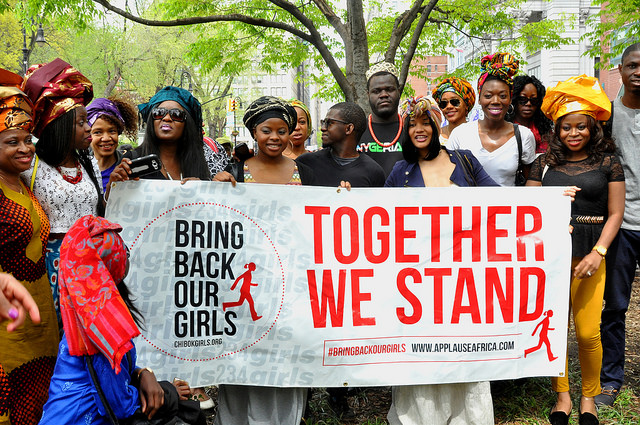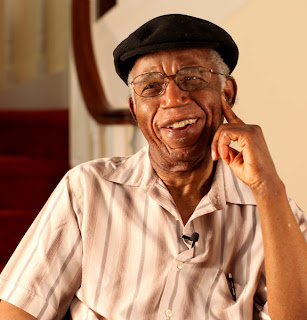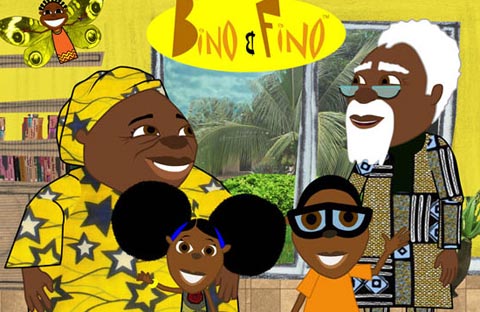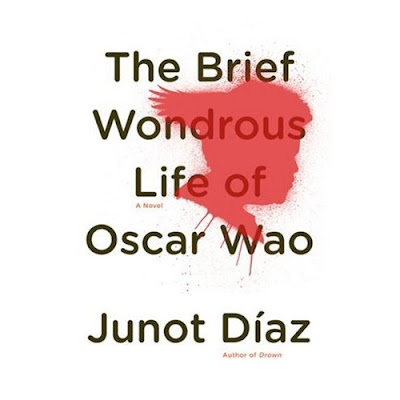Discover the art of Karo Akpokiere, Cartoon Brew's Artist of the Day.
The post Artist of the Day: Karo Akpokiere appeared first on Cartoon Brew.
Add a Comment
Discover the art of Karo Akpokiere, Cartoon Brew's Artist of the Day.
The post Artist of the Day: Karo Akpokiere appeared first on Cartoon Brew.
Add a Comment
Over two years ago I wrote that “new viruses are constantly being discovered... Then something comes out of the woodwork like SARS which causes widespread panic”. Zika virus infection bids fair to repeat the torment. On 28 January 2016 the BBC reported that the World Health Organization had set up a Zika “emergency team” as a result of the current explosive pandemic.
The post Another unpleasant infection: Zika virus appeared first on OUPblog.
After receiving nearly 1,400 submissions from across Africa, South African studio Triggerfish chose 8 projects for further development.
The post Triggerfish’s Story Lab Announces 8 African Winners appeared first on Cartoon Brew.
Add a Comment
On his recent visit to Kenya, President Obama addressed the subject of sexual liberty. At a press conference with the Kenyan President Uhuru Kenyatta, he spoke affectingly about the cause of gay rights, likening the plight of homosexuals to the anti-slavery and anti-segregation struggles in the United States.
The post Compassionate law: Are gay rights ever really a ‘non-issue’? appeared first on OUPblog.
The Boko Haram (BH) terrorist group, responsible for the abduction of over 200 school girls in north-eastern Nigeria, has been Nigeria’s prime security threat since 2009. Although the group has carried out innumerable acts of terror in Nigeria since 2009, its abduction of more than 200 girls at Government Girls Secondary School Chibok, on 14 April 2014, outraged the world and gave it reinforced international currency. The global and Nigerian Muslim community has since distanced itself from Boko Haram’s violent ideology. In the face of current cosmopolitan campaign to rescue the Chibok girls, which is christened #BringBackOurGirls (#BBOG, #BBG), the question that dominates public discourse in the aftermath of Chibok abduction is whether #BringBackOurGirls as an isolated phenomenon, or the increasing de-legitimisation of Boko Haram’s extremism by Muslims generally, would serve as a rallying point against violent extremism in Nigeria, or rather reinforce the historic sharia question that has threatened peaceful co-existence in the country since independence in 1960. For those unfamiliar with Nigeria’s religious politics and relations, the following cursory background would suffice as clarification.

Hudreds of people gathered at Union Square in New York City on May 3 to demand the release of some 230 schoolgirls abducted by Boko Haram insurgents in Nigeria. Photo by Michael Fleshman. CC BY-NC 2.0 via fleshmanpix Flickr.
In most parts of northern Nigeria, Islam and sharia predated the post-independence Western-secular system that was bequeathed to a unified Nigerian state at independence. Uthman dan Fodio’s jihad of 1810, which captured the Hausa states of northern Nigeria, brought about the establishment of an Islamic central authority under the Sokoto caliphate. Since dan Fodio’s jihad was aimed at establishing a theocratic state, Islam inevitably became a state religion in these captured Hausa states. Although the British colonial authorities protected the theocratic political order they met in these emirates for reasons of imperial convenience, they nonetheless introduced a legal system that modulated the sharia order. Notwithstanding this interference, Islam and sharia survived colonial invasion in these states. Although the sharia legal order was relatively modulated to protect the British and other European merchants, its application on the natives remained significantly strong. This arrangement remained so until it became obvious to the British that an Islamic political/legal order would not serve the commercial interest of Western merchants, particularly after independence. With this concern in mind, the British orchestrated a reversal of the sharia order, and cajoled the Muslim north into accepting a relatively secular system at independence, an arrangement that was christened “the Settlement of 1960”.
The settlement of 1960 was a pact between the British colonialists, as arbiter, the northern and Southern Animist-Christians on the one hand, and the Muslim north on the other. It was aimed at establishing a secular legal order side by side a modulated Islamic legal regime. It is intriguing to note that whereas the Christian community initially opposed this settlement for the fear of a covert Islamization agenda, the northern Muslim community was at first supportive of it. But the respective positions of the Christian and Muslim communities were to be reversed shortly after independence. The Christian community turned around to favour the settlement of 1960 while the northern Muslim community became avidly antagonistic to this arrangement.
Although many factors account for northern Muslims’ opposition to the settlement, the most significant factor is the sharia debate that ensued during the constitution-making process of 1976-78. At the constitutional conferences, there was considerable mobilisation by northern political and religious leaders for the entrenchment of sharia in Nigeria’s legal system. Unfortunately, the Muslim north suffered a humiliating defeat at the hands of Christians in their quest for the establishment of sharia. This bitter defeat meant that northern Muslims had lost most of the incentives that made the Settlement of 1960 attractive to them in the first place. Among other consequences, the sharia debate marked the beginning of vigorous and sustained activism by northern Muslims for an Islamic state, or much less, an Islamic legal, economic, and social order within the Nigerian state. This activism has taken both liberal and radical approaches. Whereas the intellectual and political classes continue to pressure the state for Islamic determinism, the Islamists and rustic northern Muslim folk often express this quest in violent ways.
The Islamic revivalism that followed the sharia debate of 1976-8, inspired the emergence and proliferation of radical Islamic sects and spurred the influx of radical Islamic clerics from neighbouring states and Senegal, into northern Nigeria. Within this period, acts of religious violence were often encouraged or ignored by state authorities in northern Nigeria. Consequently, religious violence became a common feature in this part of the country, as Christians became objects of religiously-motivated attacks at the least provocation, either directly or vicariously. For instance, the US invasion of Iraq in the 1990s led to pervasive attacks on Christians and their worship centres in northern Nigeria. In 2003, a Danish newspaper cartoon, which allegedly disparaged Prophet Mohammed, led to mass killing of northern Christians and destruction of their Churches and property. In the aftermath of 9/11 bombing in 2001, Muslims celebrated in Northern Nigeria and vandalized Churches in the process. More recently, Christians in northern Nigeria were subject of attack from Muslims, when US planes attacked Libya during the Arab Spring. The Boko Haram sect emerged in the context of this continuum of Islamic activism, which endorsed violence as one of its operational tools. Its ideology was therefore weaved around the establishment of an imaginary puritanical state governed by sharia. Fortunately or unfortunately, Boko Haram’s interpretation of kafir (heathen) transcends the simplistic description of “non-Muslims” and encompasses those Muslims who don’t subscribe to its fundamentalists brand of Islam.
Paradoxically, Boko Haram which emerged as an ‘Islamic sect’ has taken its defence of Islam overboard, killing in the process moderate Islamic teachers, preachers, and other Muslims who deprecate its fanatical brand of Islam. Its indiscriminate attacks over the civilian population also do not distinguish Christians from Muslims. Specifically, Boko Haram’s policy of targeting moderate Muslims has become a significant paradox of sorts, given that it is a product of the overarching sharia struggle in northern Nigeria. With the unfolding of its extreme and caustic brand of Islam, the group has not only denounced the legitimacy of the Islamic leadership in Nigeria, it has declared them and other moderate Muslims as kafir and enemies of Allah. As #BringBackOurGirls draws global attention to Boko Haram specifically, and violent extremism in Nigeria generally, the global and Nigerian Islamic community have continued to condemn their activities, describing their activities as criminal un-Islamic. Both the Secretary General of the Organisation of Islamic Conference (OIC) and the President of Nigeria’s Supreme Council for Islamic Affairs have said so. However, many questions have been asked of the recent de-legitimisation of Boko Haram by the Muslim community: Is the condemnation of Boko Haram by Muslims inspired by a genuine concern over violent extremism or borne out of its indiscriminate attacks against Muslims? Would Muslims in northern Nigeria, continue to condemn the activities of individuals or groups who express extreme and violent tendencies in the name of Islam? Would any attack on Christians and their property be condoned or ignored in the future?
In the aftermath of the #BringBackOurGirls, two schools of thought have emerged.
There are those who opine that Boko Haram insurgency is a prelude to greater religious upheavals in northern Nigeria, if northern Muslims are neither allowed the liberty of having an Islamic state nor practicing sharia in its orthodox fashion. Those who hold this viewpoint argue that the Muslim community would not have genuinely distanced itself from Boko Haram, if its targets were solely Christians. They also contend that the general discord between liberal and fundamentalist Islam in the Middle East has not deterred the support for an age-long global Islamization agenda that is funded from this region. Relating this to the Nigeria situation, the logic is that Islamism or violent extremism would not deter the historic sharia activism in northern Nigeria hence the need to revisit the sharia debate.
Persuasive as these arguments may sound, I hold a contrary view. In my estimation, the Boko Haram and Maitatsine Islamic sects have clearly demonstrated that Islamism (rigid and extreme adherence to Islamic tradition and its violent expression) is totalitarian and provides no room for liberal adherence to Islam. Secondly, due to its anti-modernisation character, no state desirous of progress tolerates violent extremism. Saudi Arabia, which is the cradle of Islam, has zero tolerance for it. Moreover, the northern elite, who supported Islamic activism in the past, has become its biggest victim. As the northern economy crumbles under Boko Haram’s campaign of violence, the elite who hold the highest stakes in the economy are equally the biggest losers. They have also realized that there is no ideological discipline for men in arms, as they are bound to resort to violent crime for economic reasons. It is in realisation of these facts that the northern Governors admitted in their meeting in February 2014, that Boko Haram has destroyed the north economically, socially, and politically.
For these and many other reasons, I hold an optimistic view that #BringBackOurGirls would not only lead to the rescue of the abducted girls, it marks the beginning of the end of Boko Haram insurgency — but most importantly, the end of religious intolerance and violent extremism in northern Nigeria. #BringBackOurGirls presents an opportunity to Christians and Muslims in northern Nigeria to rally against violent extremism by treating the indiscriminate killing and destruction of property as criminal acts and not acts of religious deference. I believe these two religious communities would embrace this opportunity as was recently demonstrated in the city of Kaduna, where they united to wade off Boko Haram attackers.
Isaac Terwase Sampson is the author of “Religion and the Nigerian State: Situating the de facto and de jure Frontiers of State–Religion Relations and its Implications for National Security” (available to read for free for a limited time) in the Oxford Journal of Law and Religion. He is a Senior Researcher at the Centre for Strategic Research and Studies, National Defence College, Nigeria. He joined the Centre in 2006 from the Ministry of Justice, Kogi State, where he served as a Senior State Counsel.
The Oxford Journal of Law and Religion publishes a range of articles drawn from various sectors of the law and religion field, including: social, legal and political issues involving the relationship between law and religion in society; comparative law perspectives on the relationship between religion and state institutions; developments regarding human and constitutional rights to freedom of religion or belief; considerations of the relationship between religious and secular legal systems; empirical work on the place of religion in society; and other salient areas where law and religion interact.
Subscribe to the OUPblog via email or RSS.
Subscribe to only law articles on the OUPblog via email or RSS.
The post The #BringBackOurGirls rallying point appeared first on OUPblog.
Maggie Steele, the storybook heroine who vaults over the moon, has been attracting thousands of visitors from around the world. So many visitors, in fact, that she’s using a time zone map to keep track of them all.* People are … Continue reading ![]()

Pinky, are you pondering what I’m pondering?
I think so, Brain, but why would a school in Nigeria name themselves after us?
The pair of Warner Bros. mice may have failed in their countless attempts to take over the world, but they have proven successful in having a school in Abuja, Nigeria name itself the Pinky and the Brain School.
The school, which is almost certainly unauthorized by Warner Bros. and thus doubly awesome, has an official anthem that manages to praise both God and Pinky and the Brain:
We are the children of Pinky and the Brain, Children growing in wisdom, age and grace.
We lift our voices to thank God; the giver of life.
Shout it out, far and wide,
Pinky and the Brain first among equal,
Pinky and the Brain, the flag bearer, for others to follow.
(Thanks, Jason, via Cartoon Brew’s Reader Submission Forum)
Add a Comment
 |
| Chinua Achebe, 1930-2013 |
His departure now – euphemism must be used, if only once – feels much like an encounter with his work: it was unexpected because it had been possible to believe that he was beyond mortality. Achebe simply was. He existed in the world and the world existed because he did. I could afford to take his existence for granted, could afford not to teach or discuss or write about his work, because he simply was. His being in the world made certain things unnecessary. Because he was. Certain figures inspire a kind of faith that they have transcended death, and their deaths hit all the harder – most recently for me, Adrienne Rich who, like Achebe, simply was. When they die – euphemisms can no longer work – we continue to call their names, hoping that they will return to us, that their ghosts will continue to energize the labor they started and sustained and that we now feel unable to continue. So it is that we continue to call for Audre Lorde. Believing, as we must, that she can still provide the right words, the necessary words, the transforming words.
Simon Gikandi has written that Chinua Achebe “invented” African literature. This is not a claim about who wrote first – other Africans wrote before Achebe. Nor is it a claim about the volume of his work – others have written more. It is a claim, I think, about Achebe as an institution builder, as one who made possible a certain kind of imagination and, in his role as editor with the African Writers Series, made possible many other imaginations for African literature. Perhaps the greatest compliment that can be given to a writer is this: that a particular book has been written. A particular imagination explored. A room populated. And multiple other rooms made possible.
Few contemporary Africans, if any, feel the need to write another Things Fall Apart. Indeed, by the mid-1960s, Things Fall Apart could not be written again. Achebe’s work had given African writers the permission to pursue their geo-histories, to take multiple paths, to pursue the mystical and the routine, the profane urban and the perverse rural, the unending past and the foreclosed future. Things Fall Apart had been written, and African writing pursued its multiple afters, with Achebe as inspiration, as guide, and as champion.

Nigerian animator Adamu Waziri is the creator of a new animated series Bino and Fino, an African-produced preschool TV series that aims to show a more acccurate representation of children growing up on the African continent. In the interview below, which is well worth viewing, Waziri talks about how Africa is portrayed by Western entertainment companies: “When Disney does something about Africa, you get singing animals, safari. You don’t see any buildings, you don’t see any people in a house, you don’t see people living a normal urban life, like in Lagos, Abuja, wherever in Africa you are.”
It’s not just misrepresentation by American media conglomerates, but also underrepresentation. Nick and Cartoon Network have African channnels that make no effort to represent their viewership in those regions. In Africa, Nick airs Dora the Explorer, The Mighty B!, and Ni Hao, Kai-Lan but features no African characters in its TV series.
In this recent CNN article, Waziri talks about the challenges of home-grown animation in Nigeria. Sponsors still aren’t used to the slow production time of animation, especially when Nollywood features are produced in a month or less, and many Nigerians still have a “West is best” mentality. But he maintains a positive outlook and recognizes the possibilities for animation in the world’s second most populated continent: “Nigeria and other parts of Africa aren’t poor, you have businessmen, the infrastructure, the ability to link up and make studios, finance it and sponsor it and make the market—stop waiting for Disney to do it, do it yourself.”
Cartoon Brew |
Permalink |
No comment |
Post tags: Adamu Waziri, Bino and Fino, Nigeria
Before I share a story from the trenches, I would like to announce the winner of last week’s book giveaway of the memoir, When Ties Break, by Margaret Norton. And the winner is. . .Sandy Young! Congratulations, Sandy. If you didn’t win this book and are interested in reading a memoir about loss, grief, recovery, strength, and stopping abuse, then please go to Tate’s website to purchase it!
The story from the trenches is one that I read yesterday in church. We have a visiting priest, Rev. Fr. Tony Fevlo, from Africa, who will speak to us next week about his work in St. Joseph SMA Parish in Plateau State, Nigeria. He is currently raising money to build a new church in his parish that will accommodate 1500 people. The existing church is too small and also has structural damage, including cracks in the walls and a leaking roof. This is a wonderful mission, of course, but this is not the actual story I want to share with you today.
He shared the turmoil that happens around him with inter-religious clashes between Muslims and Christians. Every time, I hear stories like this I think: This is happening in the 21st century????? It is. In January 2010, 33 of Father Tony’s parishioners lost their property or had their houses burned. One of his parishioners was reportedly butchered to death and asked to renounce his faith before he died. Much of Father Tony’s finances for his church are currently going to these families to help them rebuild–since they are homeless.
The trouble didn’t stop there. In March 2010, Father Tony and his parishioners woke up to the news of a massacre of over 500 children, women, and elderly people living in the village of Dogonahawa (25 km from Father Tony Fevlo’s parish). The massacre was led by the Hausa/Fulani Muslims. Father Tony said: “Since the March 7th massacre, we live under constant fear in K/Vom and can hardly have a peaceful night’s rest.”
As I sat in church yesterday reading his words and thinking about the donation they were going to collect next Sunday, I wondered how I could get my stepson involved in this. And then when we walked out of church, Father Tony had actually posted pictures of his church and parishioners, and I knew this was the way. When Logan can see something concrete, he can then think about giving some money from his piggy bank to this cause. This also got me thinking that there has to be books out there that help us, as parents and teachers, teach children about giving and having sympathy for others–especially those less fortunate.
I found these two books that could be of some help. I am so thankful that there are people in the world like Father Tony Fevlo and that he shares his story with us. It makes me strive to be more giving, less materialistic–although I struggle–and I hope it will also help me to influence my children to be the same way.
Add a Comment
I think I might show this beautiful speech by Chimimanda Ngozi Adichie on the first day of my Outsider course in the fall -- it's 18 minutes well spent.
Stories matter. Many stories matter. Stories have been used to dispossess and to malign. But stories can also be used to empower, and to humanize. Stories can break the dignity of a people. But stories can also repair that broken dignity.

The Brief Wondrous Life of Oscar Wao
Author: Junot Diaz
Publisher: Riverhead Hardcover
ISBN-10: 1594489580
ISBN-13: 978-1594489587
I was in New York this June for Book Expo America and was walking through a crowded aisle on my way to a meeting when something caught my eye and made me stop dead in my tracks. The name Junot Diaz on a simple white cover was enough to stop my fast moving walk to a meeting a had about a minute to get to clear on the other side of the Javits center. I not only stopped, I gasped and then I grabbed. I held that book like it was the Holy Grail and enraptured, carried it to my meeting which I couldn’t concentrate on because all I could think of was the book, the long awaited book burning a hole in my book bag.
That night on the balcony overlooking the Empire State building at my friend Joe’s place in Hell’s Kitchen I reverently opened the book by Junot Diaz. It was early morning with a muggy sun coming up before I put it down again. There were pages that I read once, twice, thrice just for the pleasure of them. The footnotes in particular were wonderful. I read them again and again out loud to myself just for the pleasure of saying them. I re-read the book on the plane home and found it to be equally entertaining and great. I got into the office and shared footnotes with people reading them out loud at random times.
I waited and waited to review it. Why? Because sometimes a book is so damned great that it defies reviewing. I mean what do you say? Everything will sound canned. It’s great, it’s wonderful, it’s fantastic. Whatever. It’s all that and more but how to say it? How do I describe what is essentially a masterpiece so eloquent that it almost defies description? Think Britney Spears following Janis Joplin at a concert. Yeah.
Well, I chickened out and put the book to sit on my shelf for a couple of months just to sit there and glare at me. Well it’s time now – the book, the glorious book is tired of waiting. I read it again last night and two months haven’t changed its beauty.
The Brief Wonderous Life of Oscar Wao begins with a history of fukú (a curse of both gargantuan and subtle proportions) outlined in its gorgeous footnotes that reveal a plethora of Dominican history and political information with a deft and almost musical talent. The footnoted description of fukú was hilarious and I read it again and again. You get the sense that this story about a sci-fi addicted, desperately lonely fat boy Oscar is doomed from the start but you can’t help hoping for him all the time knowing that the fukú is gonna get him.
The book flips back and forth with information about Oscar, pitiful Oscar, his sister, mother, grandparents and peripheral people in his life. The whole Dominican Republic past and present is also a character as is the evil Trujillo. The 30-year reign of terror of one President Rafael Leónidas Trujillo was particularly bloody. Shit, us Mexican girls grew up scared of Trujillo. That vato made the massacre at Tlateloco by the Mexican government look like a Sunday outing. (I’m NOT trivializing Tlateloco by any means – just showing how horrible Trujillo was. Sol ducks looks around hoping the fukú doesn’t get her).
Oscar’s life story is an amazing one – he is a hero just by virtue of being so pathetic and his first generation immigrant status. You feel his pain, his loneliness and want so badly to help him but you can’t. There are 500 years of pain and abuse stored up in that boy. The way I saw it Oscar became the colonized Latin America/indigenous peoples all rolled up into one fat nerd.
The book switches back and forth from English, to Spanish, to indigenous slang, to insults, to an almost hip hop feel, a sing-song rap about cultural genocide, abuse, pillage and politics all caught up in the life of one young man. It reads like a song and makes no italics or apologies for switching back and forth between languages and slang. It’s saying understand me or don’t – my prose is so gorgeous I don’t need to translate for you. Just deal. Just read. Just absorb. And you do. You breathe Junot Diaz’s words. You learn more about the DR and politics than you’d ever learn in a history class taught by the best teacher. You’re captured, captivated, you’re sucked in, your singing along with him and your singing in his style. At the end of the book you’re changed and you’ll never be the same.
Book Description from the publisher
This is the long-awaited first novel from one of the most original and memorable writers working today.
Things have never been easy for Oscar, a sweet but disastrously overweight, lovesick Dominican ghetto nerd. From his home in New Jersey, where he lives with his old-world mother and rebellious sister, Oscar dreams of becoming the Dominican J. R. R. Tolkien and, most of all, of finding love. But he may never get what he wants, thanks to the Fukœ-the curse that has haunted the Oscar's family for generations, dooming them to prison, torture, tragic accidents, and, above all, ill-starred love. Oscar, still waiting for his first kiss, is just its most recent victim.
Diaz immerses us in the tumultuous life of Oscar and the history of the family at large, rendering with genuine warmth and dazzling energy, humor, and insight the Dominican-American experience, and, ultimately, the endless human capacity to persevere in the face of heartbreak and loss. A true literary triumph, The Brief Wondrous Life of Oscar Wao confirms Junot Diaz as one of the best and most exciting voices of our time
About the Author
Junot Diaz's fiction has appeared in The New Yorker, The Paris Review, and The Best American Short Stories. His debut story collection, Drown, was a publishing sensation of unprecedented acclaim, became a national bestseller, won numerous awards, and is now a landmark of contemporary literature. He was born and raised in the Dominican Republic, and now lives in New York City and Boston, where he teaches at MIT
So. I generally avoid books like these. However, I found your review highly entertaining . . .
I feel your inner rapture over a personal treasure in book form. Thanks for sharing!